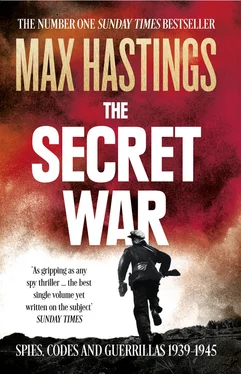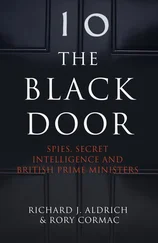Max Clausen became too sick to keep pace with transmission of Sorge’s flood of material, and began secretly to destroy unsent a substantial proportion, arbitrarily selected. Thus, while it is known what information Sorge claimed to have passed on to the Fourth Department, it is unclear what actually reached them in 1941: Russian releases of some of his material in the 1990s must be treated with caution, because selective. From the end of 1940 onwards, Sorge was personally convinced that Germany and the Soviet Union would go to war. He was deeply troubled by the prospect, and by its implications for himself. During the early months of 1941 he reported an increasing Japanese focus on a ‘Strike south’ strategy against the European Asian empires. On 10 March he wrote of German pressure on Japan ‘to invigorate her role in the Tripartite Pact’ by attacking the Soviet Union. But Sorge added that this war would only start ‘once the present one is over’.
In May he asserted that Hitler was resolved ‘to crush the Soviet Union and keep the European parts … in his hands’, but suggested that there was still scope for diplomacy to prevent war. Later that month he said that his German contacts expected an invasion to be launched before June, but then added that some important visitors from Berlin believed that the prospect of such action taking place in 1941 had receded. Both these signals probably reflected Sorge’s conversations with Lt. Col. Schol, a Wehrmacht officer passing through Tokyo en route to taking up the post of military attaché in Bangkok. On 30 May he wirelessed: ‘Berlin has informed Ambassador Ott that the German offensive against the USSR will begin in the second half of June. Ott is 95 per cent sure that the war will begin. The indirect proofs that I see at the present are as follows: The Luftwaffe technical delegation in [Tokyo] has been ordered home. Ott has requested the military attaché to halt the transmission of important documents via the USSR. The shipment of rubber via the USSR has been reduced to a minimum.’
Sorge’s reports were as good as any government at any moment in history could ask from a secret agent, but he was one among many voices that cried in the wilderness surrounding the Kremlin. Stalin was no more willing to trust the word of his Tokyo man than that of any other source. He once described Sorge, about whom he had been briefed, as ‘a lying shit who has set himself up with some small factories and brothels in Japan’. Although the Soviet warlord was notoriously wrong about ‘Barbarossa’, few national leaders have lost empires by declining to accept the unsupported word of secret agents. Historians carve spies’ coups in letters of gold, but seldom detail the vastly larger volume of humint that has been partially or wholly misleading. Molotov said in old age: ‘I think that one can never trust the intelligence … The intelligence people can lead to dangerous situations that it is impossible to get out of. There were endless provocateurs on both sides … People are so naïve and gullible, indulging themselves and quoting memoirs: spies said so and so, defectors crossed the lines …’ Stalin would have been more likely to believe Sorge had the spy reported that the Germans’ posturings formed part of a plot concocted by the faraway British.
The most authoritative intelligence sent to Moscow in advance of ‘Barbarossa’ came from the Russians’ Berlin networks. What became known as the Rote Kapelle – the Red Orchestra – was not a single entity, though supposed to be such by the Germans. It was a cluster of separate GRU and NKVD networks, which only careless tradecraft and operational emergencies caused to become entwined. The Rote Kapelle was less important for its impact on the war, which proved slight, than for the fact of its existence. The Western Allies secured extraordinary military intelligence through Ultra, but never had humint sources of any significance inside Germany – unless we include a product of Purple, described later – until some members of the anti-Hitler Resistance contacted Allen Dulles of the OSS in 1943. The Russians, by contrast, controlled a shaft to a goldmine.
The Harnack/Schulze-Boysen network supplied Moscow with information from an ever-widening circle hostile to the Nazi regime. Although they themselves were people of the left, they appear to have forged links with some conservative Resistance figures such as Dietrich Bonhöffer, and also to have had contact with the White Rose group in Munich. Given the number of informants involved, and their reckless insouciance about security, the group’s survival until 1942 was a reflection of Abwehr and Gestapo blindness rather than of the Rote Kapelle ’s guile. Arvid Harnack was so passionate in his commitment to the cause that he involved his group in printing anti-Nazi pamphlets and even acted personally as a watcher while other group members pasted wall posters by night. Such grandstanding was courageous, but endangered his much more important intelligence work.
Throughout the first twenty-two months of the war, while the British strove to pierce the fog obscuring their view of the Continent, the Russians were able to continue spying almost unimpeded. As neutrals, they channelled to Moscow through their diplomatic missions agent reports from all over the world, without need for using hazardous wireless links. In Berlin, the Gestapo’s Willy Lehmann had languished since Moscow shut down contact to him in the wake of the 1939 Nazi–Soviet Pact. Lehmann was a loner, and his self-purpose had come to revolve around his intelligence activities for the Russians. Why had they abandoned him? In September 1940, season of the Battle of Britain, he risked slipping a letter into the Soviet embassy mailbox, addressed to ‘the military attaché or his deputy’. In it, ‘Breitenbach’ pleaded for a resumption of relations. He said that unless he could serve the NKVD once more, ‘my work at the Gestapo will become pointless’, and provided a password for telephone contact.
This letter, and the question of whether to reactivate Lehmann, were referred to Moscow. Draconian instructions from the Kremlin decreed that the Berlin NKVD should neither offer nor respond to any provocation that might help to justify German aggression. Nonetheless, after a debate Centre dispatched an able young officer, Alexander Korotkov, codename ‘Stepanov’, to become deputy station chief. He contacted Lehmann, and reported back after a long meeting: the man seemed sincerely desperate to reopen his line to Centre. On 9 September 1940, a personal order from Beria reached Berlin: ‘No special assignments should be given to “Breitenbach”. [But] you should accept all material that falls within his direct sphere of knowledge, and also any information he can offer about the operations of various [German] intelligence services against the USSR.’ ‘Breitenbach’s’ extravagant enthusiasm kept alive Beria’s suspicion that he was a Gestapo plant, testing the sincerity of the Kremlin’s commitment to the Nazi–Soviet Pact. Hence the security chief emphasised that the Berlin informant should be pressed to provide documentary evidence for every assertion he made. So impoverished was the NKVD’s staff in the wake of the Purges that a complete novice was dispatched to act as Lehmann’s courier: Boris Zhuravlev scarcely spoke any German, and after arriving in Berlin his first step was to hire a language tutor. The young man also bought a bicycle, in order to start learning his way around the city. From the outset he was almost overwhelmed by the flow of documents Lehmann delivered at evening meetings, which had to be copied overnight, then returned before the informant set off for his office.
On 20 September 1940, for instance, the Gestapo man warned Moscow that the Abwehr was planning a honeytrap for Soviet military attaché Nikolai Shornyakov, using a singer from the Rio-Rita bar named Elisabeth Holland, an Austrian friend of the attaché’s landlady. Breitenbach gave a detailed description of the Abwehr case officer, Siegfried Müller: tall, blue-eyed, black hair, small moustache, sunken cheeks, piercing stare, with big ears and a thin neck. Müller was rash enough to seek to pass himself off as a member of the Gestapo. When this was brought to the attention of Reinhard Heydrich, Himmler’s deputy dispatched a stinging rebuke to Admiral Canaris for allowing the Abwehr man to fly false colours.
Читать дальше












